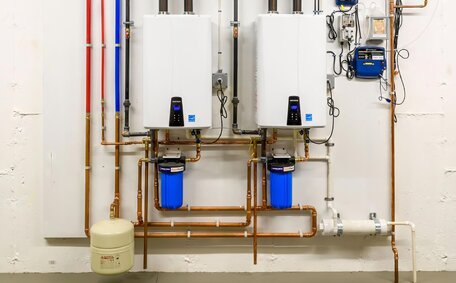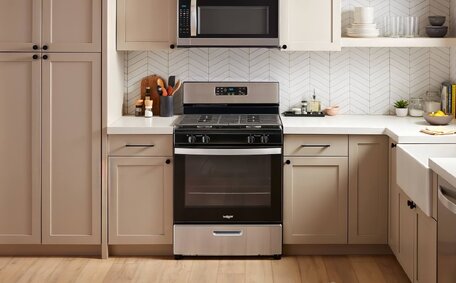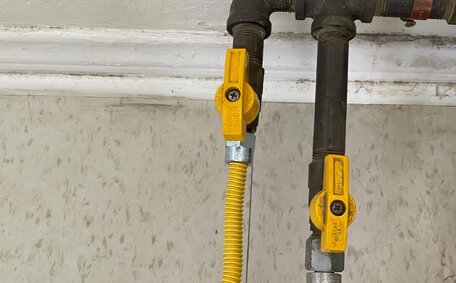
How Hard Water Hurts Hot Water Heaters
Hard water leaves mineral deposits in heaters, pipes and tanks. This limescale reduces efficiency, lifespan and hot water availability. Contact us for affordable water softening solutions.
Read MoreHomeowners and business operators must adhere to natural gas safety protocols to detect gas leaks and ensure appliance functionality. All gas malfunctions, including leaks or carbon monoxide exposure, can lead to severe health consequences, including headaches, nausea, fatigue, breathing issues, and even death in extreme cases. Being able to identify problems, particularly when you suspect issues that can cause a gas leak on your property, and take appropriate action is key to preventing accidents and maintaining safety.
You will gain insights into the hazards of carbon monoxide and receive practical tips for the safe operation of your appliances.
We’ll discuss detection of gas leaks through visual and olfactory signs, steps to take upon suspicion of a leak, preventative maintenance, and the importance of expert servicing.
Our insights will empower you to monitor your gas system vigilantly and recognise when it’s time to engage a licensed gasfitter. More importantly, you’ll know how to respond if faced with a gas emergency. Let’s begin by understanding why it’s crucial to call licensed gasfitter for consistent gas safety vigilance in homes and businesses.
While there are no definitive signs, various indications could imply a dangerous gas leak:
Trust your senses – Gas safety advice suggests turning off your gas if you detect a rotten egg odour or hear hissing, which may indicate a leak in your home; take it seriously and act quickly, as explained in the next section.
Faulty appliances, such as gas stoves, water heaters, and gas heaters, can severely impact health when issues arise from using gas. The risk of carbon monoxide poisoning, particularly from unflued gas heaters lacking proper ventilation or malfunctioning, is of grave concern.
Symptoms of a gas leak in your residence include headaches, dizziness, weakness, upset stomach, vomiting, chest pain, and confusion. Infants, pregnant women, elderly people, and those with existing health conditions are most vulnerable.
Beyond CO dangers, indoor gas appliances emit nitrogen dioxide, carbon dioxide, formaldehyde, and other combustion products that degrade indoor air quality triggering breathing issues like wheezing and asthma attacks. Defective appliances demonstrate the risk of fires, explosions, and negative pressure incidents that threaten safety.
If an appliance is giving off strange fumes, making popping sounds, has changing flame colours, or shows signs of deterioration, turn it off immediately and call a licenced gas fitter.
Don’t take risks with faulty gas equipment in your home or any gas leak your commercial kitchen equipment might have. That’s why it’s essential appliances are professionally installed, checks are conducted at least every two years, and any problems are addressed urgently.
There are several crucial steps homeowners should take to prevent gas leaks and issues with gas appliances, detecting problems early:
Preventative measures lower the risk of gas leaks and improve the safety of gas appliances in residential and commercial settings. Recognising the signs and knowing how detect gas leak signs your equipment displays when faulty also minimises risks should problems arise. Don’t hesitate to contact a licenced gas fitter if you suspect any appliance malfunction or leak.
Upon noticing potential gas equipment issues, immediate actions, like shutting off the gas, are critical. When addressing gas leaks, requires you to evacuate the area, open every window and door to usher in fresh air, and usher everyone to safety outside your home or in a neighbouring unaffected building. During evacuation, avoid using any electrical devices or switches found in items that use gas, as sparks could ignite the escaped gas.
Turn off your gas supply valve located on your gas meter or gas cylinder if you suspect gas leak and it is easily accessible without re-entering the building. If the leak persists, immediately cut off the gas flow and call your gas provider or 000 for emergency help. Do not attempt to restore your gas supply until a professional has inspected it and your supplier has given the clearance.
If you evacuated due to a suspected carbon monoxide leak specifically, get prompt medical attention for anyone showing CO poisoning symptoms.
Be prepared to provide details like the number of people affected. Never use any endangered appliances and do not re-enter the premises until emergency services give the all-clear that it’s safe to return.
Even with vigilant monitoring, if you suspect your gas appliances have issues, recognising the need for immediate professional assistance is crucial. At Picnic Point Plumbing, our team is dedicated to impeccable, professional gas work, with fully licensed and insured gas fitting technicians performing comprehensive safety inspections and repairs.
We conduct gas leak detection tests, provide carbon monoxide testing, assess ventilation effectiveness, analyse flame colours and performance, plus inspect pipes, valves and appliances for faults.
If an issue is found, we will methodically troubleshoot until we identify and fix the source. We only install certified gas products and offer reliable maintenance plans to keep your systems running safely.
To book a home gas safety inspection, call Picnic Point Plumbing on 1300 349 338 or email jobs@picnicpointplumbingservices.com.au. Never delay ensuring your gas systems comply with stringent safety standards, as your family’s health is paramount.
Maintaining gas appliance safety is crucial for protecting health and preventing dangerous accidents in homes and businesses. Being vigilant to warning signs like strange smells or sounds, taking preventative measures, and knowing how to respond in an emergency are all key to effective gas safety management.
This guide covers key topics like identifying gas leaks, carbon monoxide dangers, evacuation procedures, and the need for professional repair services. As a reader, you should now be prepared to proactively monitor your gas systems and resolve issues before they intensify.
It’s essential not to underestimate gas risks or presume problems won’t affect you. The safety of your family depends on the consistent and correct operation of your gas appliances. If in doubt, call certified gas technicians to evaluate your current level of risk.
Follow the guidance provided on inspection routines, installer selection, ventilation effectiveness and acting urgently when problems are suspected.
Visit Productsafety.gov.au for additional resources on gas appliance standards and consumer rights regarding safety, repairs, and mandatory servicing. You deserve peace of mind knowing your home environment is free from the dangers of gas leaks, fires, explosions and the irreversible effects of CO poisoning.
Remain watchful; prevention and timely intervention are crucial for a gas-safe environment.
Hard water leaves mineral deposits in heaters, pipes and tanks. This limescale reduces efficiency, lifespan and hot water availability. Contact us for affordable water softening solutions.
Read MoreIt’s important to routinely check your gas appliances for any issues. Signs of problems include gas leaks, strange sounds, odd smells and more. Have a professional inspect your gas appliances annually and service them regularly for safety.
Read MoreUpgrading your gas meter is a simple process completed by registered technicians. It involves disconnecting your gas supply for 15 minutes to swap the old meter for a new digital smart meter. The upgrade is free and improves accuracy.
Read MorePicnic Point, 2213 NSW
We will call back as soon as possible.




